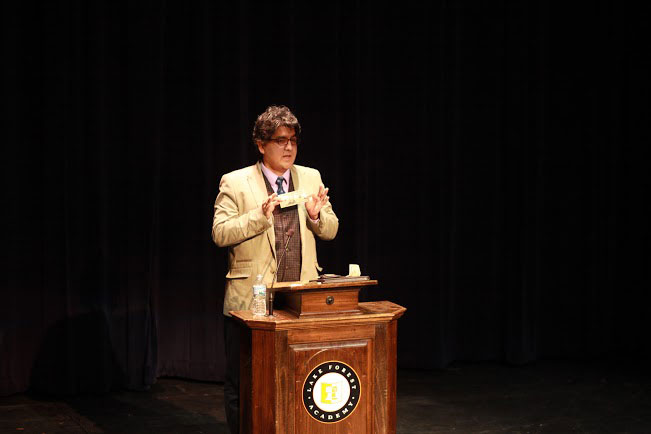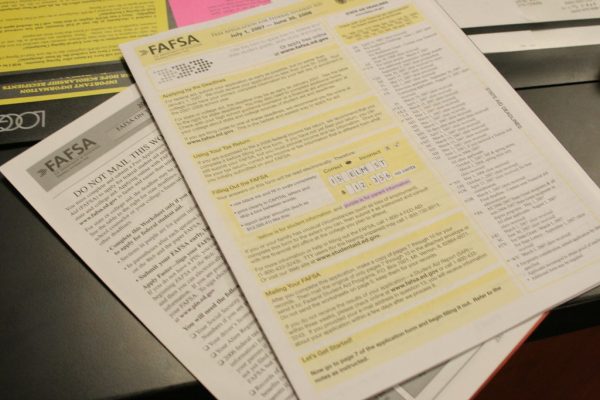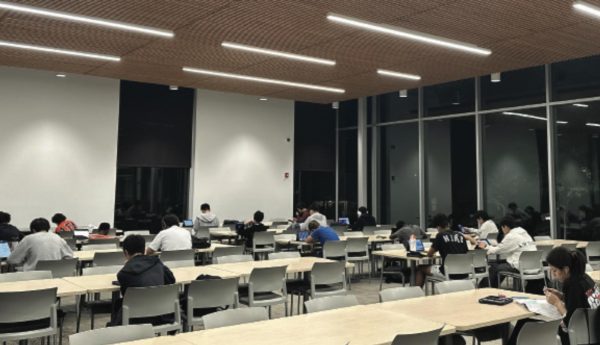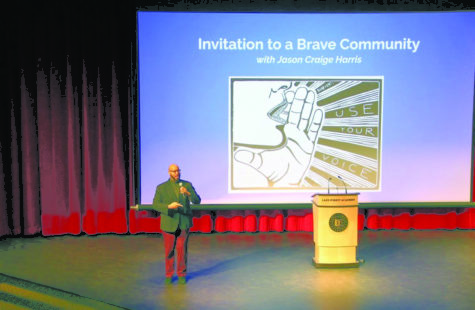Renowned author Sherman Alexie visits LFA
On September 18, the acclaimed author Sherman Alexie visited LFA. In the auditorium, Alexie talked about his childhood, adulthood, and the ever-present influence of racism in America today. He emphasized how being a Native American and growing up on the Reservation has been the main inspiration in many of his stories.
“Good evening you privileged little s%$! #*@!&,” Alexie joked as he introduced himself to the audience. Alexie went on to draw on his experience growing up in poverty, and how his school differed so much from LFA, a school he said he could only dream of attending as a student.
“High school sucks,” Alexie said. He acknowledged how straying from the perceived norm as a high school student can be devastating to social life. He continued to recall how different he had been in school, being the only Native American and having such a heavy Reservation accent.
“I felt like the ugliest person in the world,” Alexie stated.
Alexie then spoke about racism, and the ironic principle it holds in modern culture, especially the current young adult generation.
“You condemn individual racism, but you’re blind to institutional racism. You do this thing where you think acknowledging racism is in itself racist,” Alexie said. The first step to racism’s elimination is the identification of it in today’s world, according to Alexie. To prove his point, he asked the audience for some dollar bills. Alexie then held up a series of bills and talked about the racist activities and acts that each esteemed American man had committed. Andrew Jackson, in particular, had committed terrible crimes against humanity, especially Native Americans, according to Alexie. Alexie asked the LFA students if they would work to get Martin Luther King, Sacagawea, or another American peacemaker on an American dollar bill. He then proceeded to rip the twenty-dollar bill in half.
“Pain once felt is always felt. The past is always present,” Alexie recalled as he talked about how Europeans colonized America, completely disrespecting Native American tribes that were present on the land many years prior to their arrival.
“Things didn’t start with your [non-Native Americans’] arrival. I always laugh about anti-immigration initiatives. You guys [non-Native Americans]
have been here for a second-and-a-half [compared to Native Americans], and you act like all this shit is yours,” said Alexie.
Personal struggles also have impacted Alexie throughout his writing career. Dealing with bipolar disorder has landed him in hospitalization programs multiple times. Despite this, Alexie maintains a progressive outlook, focusing on his recovery.
“All throughout my life I have fallen apart, and gotten back up,” said Alexie. Many of his major rehabilitation has been accomplished with the help of close friends.
“I often chose friends better than individual decisions about myself,” Alexie stated.
Alexie stressed the importance of broadening horizons and extending oneself to partake in a variety of social groups, allowing many spheres of influence to play on one’s character.
“The smaller your group of identity is, the more likely you’ll be some type of asshole,” Alexie said.
When a student asked Alexie why he writes, he responded,
“Words become my friends…so often I write to fight the lonely.” He then expanded on his response at the conclusion of his speech,
“Racism. I want to live in a country where that doesn’t happen. And that’s what I fight for. That’s why I write.”










